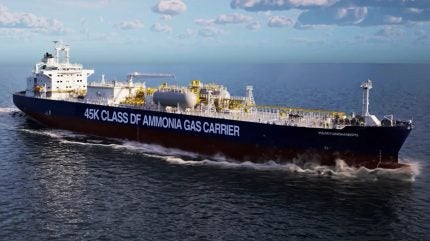
Classification society Lloyd’s Register (LR) has given the green light for the adoption of ammonia dual-fuel systems on new medium gas carriers (MGCs) being built for Singaporean commodity trading company Trafigura.
This approval follows the completion of a joint development project (JDP) for designing ammonia dual-fuel systems for the MGCs.
The vessels, which will be equipped with WinGD ammonia dual-fuel engines and Alfa Laval’s Ammonia Release Mitigation System, are designed for the dual purpose of transporting liquefied petroleum gas (LPG) and ammonia.
LR conducted a comprehensive design evaluation and safety assessment to approve the designs per its regulations and international standards.
The introduction of ammonia dual-fuel systems on these vessels represents a “significant advancement” in the adoption of low-carbon fuels, extending their application beyond specialised vessels to a wider range of ship types.
LR global gas segment director Panos Mitrou said: “We are proud to have played a pivotal role in this collaborative project. It demonstrates our commitment to supporting the maritime industry’s energy transition efforts by offering exceptional technical expertise, rigorous safety evaluations, and regulatory leadership.
“As a trusted maritime services partner, we continue to pioneer the pathway enabling the adoption of alternative fuels and innovative technologies that shape the future of decarbonised shipping.”
Trafigura selected South Korean shipbuilder HD Hyundai Mipo in 2024 to construct four 45,000m3 MGCs.
The integration of ammonia dual-fuel systems is expected to significantly cut carbon emissions from the vessels, contributing to the decarbonisation of various heavy industries.
Set to be built at HD Hyundai Mipo’s shipyard in Ulsan, South Korea, these vessels are expected to be delivered by 2028.
Trafigura Global Head of Shipping Andrea Olivi said: “EU regulations have been crucial in allowing us to execute this order. If we are to decarbonise freight and increase the demand for zero-carbon fuels across the world, we need the IMO to implement regulations including EU ETS and Fuel EU maritime on a global scale.
“The IMO needs to introduce a simple and transparent policy framework including, in our view, a global fuel standard combined with a straightforward levy applied equally across the board.”
Earlier this month, LR partnered with Microsoft to leverage generative AI to improve the use of nuclear technology in the maritime sector.



